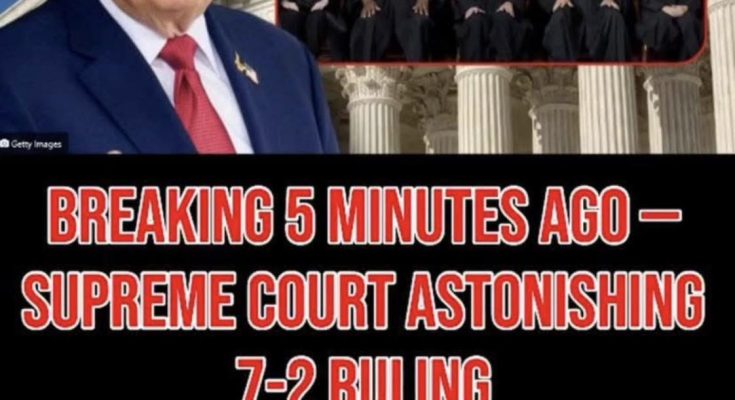The Trump administration has been authorized by the Supreme Court to repatriate a group of immigrants detained at a U.S. military base in Djibouti to South Sudan.
The justices confirmed in a brief opinion on Friday that the eight immigrants in U.S. custody in Djibouti are fully covered by their earlier order, which stayed a federal judge’s decision in Massachusetts that had limited the government’s ability to deport immigrants to nations not specifically listed in their removal orders.
The injunction was issued less than two weeks after U.S. District Judge Brian Murphy’s decision was halted by the top court. According to his directive, the federal government could not send immigrants to “third countries”—those not listed in their removal orders—without first ensuring, via a number of precautions, that the individuals would not be subjected to torture upon their return.
According to Murphy’s May 21 ruling, the administration attempted to deploy eight people to South Sudan in violation of his April 18 injunction. All non-emergency workers from South Sudan have been ordered home by the United States, and the State Department advises against traveling there due to “crime, kidnapping, and armed conflict.”
Instead, the jet that was scheduled to transport the migrants to South Sudan touched down in nearby Djibouti. Since then, the men have been detained within a military installation in the United States.
The Trump administration filed an appeal with the Supreme Court on May 27 to suspend Murphy’s April 18 ruling, requesting authorization to carry out “third country” removals while the legal dispute over the practice develops.
According to U.S. Solicitor General D. John Sauer, Murphy’s “judicially created procedures are currently wreaking havoc on the third-country removal process” and “disrupt[ing] sensitive diplomatic, foreign policy, and national-security efforts.”
The attorneys for the immigrants who might be deported to a third nation urged the justices to uphold Murphy’s ruling. Murphy’s ruling “simply requires” the Trump administration “to follow the law” when carrying out these deportations, they said, but the government may still carry them out.
Murphy stated that even after the Supreme Court addressed the Trump administration’s initial request on June 23, his May 21 decision remained in force.
The Trump administration returned to the Supreme Court the following day, asking the justices to clarify the authority of the federal government to deport the people currently detained in Djibouti. Sauer urged the court to act swiftly to address Murphy’s “unprecedented defiance” of the court’s jurisdiction.
An unsigned majority of the court’s decision on Thursday stated that the “June 23 order stayed the April 18 preliminary injunction in full.” Our stay prevented the enforcement of an injunction, which cannot be carried out by the May 21 ruling.
The conservative majority on the court was opposed by liberal justices Sonia Sotomayor and Ketanji Brown Jackson. However, Justice Elena Kagan concurred with the conservative majority of the court.
She stated that she had disapproved of the Supreme Court’s initial ruling permitting removals to third nations. “But most of this court saw things differently, and I don’t see how a district court can force compliance with an order that this court has stayed,” she stated.
The eight undocumented immigrants are reportedly from Laos, Vietnam, and Cuba.
According to Sotomayor, “What the Government wants to do, concretely, is send the eight noncitizens it illegally removed from the United States from Djibouti to South Sudan, where they will be turned over to the local authorities without regard for the likelihood that they will face torture or death.”
The government should have established its case in the lower courts first, she added, therefore the court shouldn’t have even considered the government’s request. She additionally stated that the Supreme Court’s “continued refusal to justify its extraordinary decisions in this case, even as it faults lower courts for failing to properly divine their import, is indefensible.”

